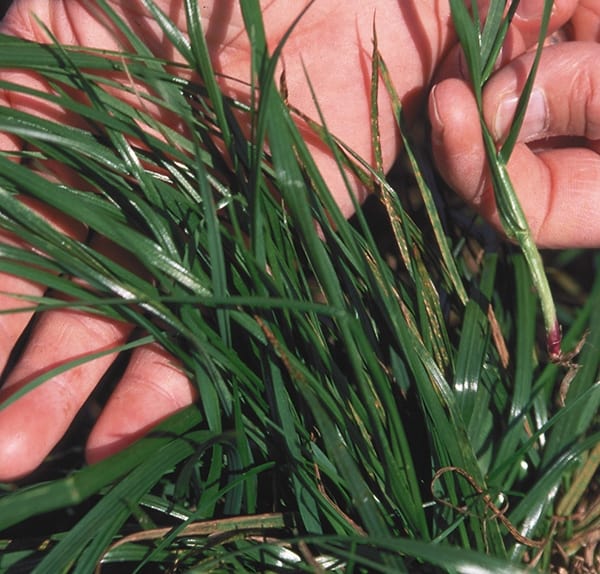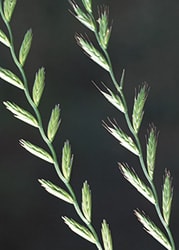The Grass Guide: Perennial Ryegrass

Life cycle: Cool-season perennial
Native to: Southern Europe and North Africa
Uses: Pasture and hay
Identification: Smooth, silky leaves with a crease mark down the middle, an almost rounded leaf toward the top, and seeds placed opposite one another in one row in the seedhead.

Perennial ryegrass is a cool-season grass with a high nutritive value that works well in rotational grazing. It grows in bunches and is not very tolerant of drought or high summer temperatures.
Perennial ryegrass is less persistent than most cool-season grasses, but due to its extensive root system, it recycles nutrients well and improves soil health. Perennial ryegrass germinates quickly and, therefore, is useful in providing quick cover around high-traffic areas such as gates and water and feed areas. However, pasture survival is usually two years in the southern zone of adaptation and three to four years in the northern zone. It can be infected with an endophytic fungus similar to tall fescue; therefor,e farms are encouraged to plant endophyte-free or novel endophyte varieties.
Krista Lea, MS, coordinator of UK’s Horse Pasture Evaluation Program within the Department of Plant and Soil Sciences; and Ray Smith, PhD, professor and forage extension specialist within UK’s Department of Plant and Soil Sciences, provided this information.
Written by:
University of Kentucky College of Agriculture, Food, and Environment
Related Articles
Stay on top of the most recent Horse Health news with















